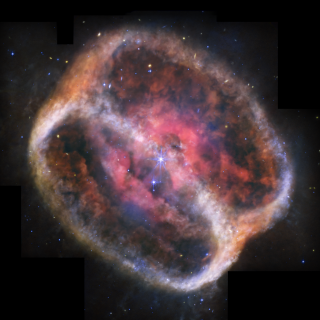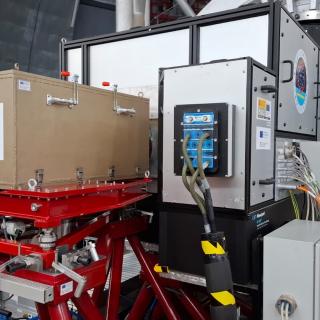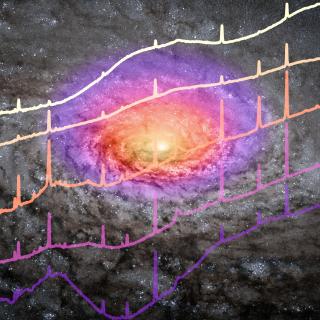It may interest you
-
 An international team, including a researcher from the Instituto de Astrofísica de Canarias (IAC), has obtained an incredible image of the planetary nebula NGC 1514 using the James Webb Space Telescope (JWST), revealing the nebula's spectacular dusty rings in unprecedented detail. NGC 1514 was one of the first nebulae to be studied by astronomer William Herschel, who noted that when viewed through his telescope (the biggest in the World at the time) the nebula looked like a fuzzy cloud somewhat similar in appearance to one of his other discoveries: the planet Neptune. The new images acquiredAdvertised on
An international team, including a researcher from the Instituto de Astrofísica de Canarias (IAC), has obtained an incredible image of the planetary nebula NGC 1514 using the James Webb Space Telescope (JWST), revealing the nebula's spectacular dusty rings in unprecedented detail. NGC 1514 was one of the first nebulae to be studied by astronomer William Herschel, who noted that when viewed through his telescope (the biggest in the World at the time) the nebula looked like a fuzzy cloud somewhat similar in appearance to one of his other discoveries: the planet Neptune. The new images acquiredAdvertised on -
 During October, the Adaptive Optics System team at the Gran Telescopio Canarias (GTCAO) of the Instituto de Astrofísica de Canarias (IAC), in collaboration with the technical team at the Gran Telescopio Canarias (GTC or Grantecan), successfully completed the integration of the GRANCAIN instrument into the world's largest optical-infrared telescope. The installation was carried out at the GTCAO outlet on the telescope's Nasmyth B platform, a key step in initiating performance testing of the new adaptive optics system. This is the first scientific instrument to operate using the GTC's adaptiveAdvertised on
During October, the Adaptive Optics System team at the Gran Telescopio Canarias (GTCAO) of the Instituto de Astrofísica de Canarias (IAC), in collaboration with the technical team at the Gran Telescopio Canarias (GTC or Grantecan), successfully completed the integration of the GRANCAIN instrument into the world's largest optical-infrared telescope. The installation was carried out at the GTCAO outlet on the telescope's Nasmyth B platform, a key step in initiating performance testing of the new adaptive optics system. This is the first scientific instrument to operate using the GTC's adaptiveAdvertised on -
 An international team led by Cristina Ramos Almeida, a researcher at the Instituto de Astrofísica de Canarias (IAC), has used the James Webb Space Telescope (JWST) to observe five dust-obscured quasars — and the results offer new insights into how galaxies and their central supermassive black holes may evolve. The study is published today in the journal Astronomy & Astrophysics . The energy released by supermassive black holes at the centres of galaxies is a fundamental ingredient in regulating the formation of new stars, and thus galaxy growth. This occurs during an active phase, usuallyAdvertised on
An international team led by Cristina Ramos Almeida, a researcher at the Instituto de Astrofísica de Canarias (IAC), has used the James Webb Space Telescope (JWST) to observe five dust-obscured quasars — and the results offer new insights into how galaxies and their central supermassive black holes may evolve. The study is published today in the journal Astronomy & Astrophysics . The energy released by supermassive black holes at the centres of galaxies is a fundamental ingredient in regulating the formation of new stars, and thus galaxy growth. This occurs during an active phase, usuallyAdvertised on